#claude laydu
Text
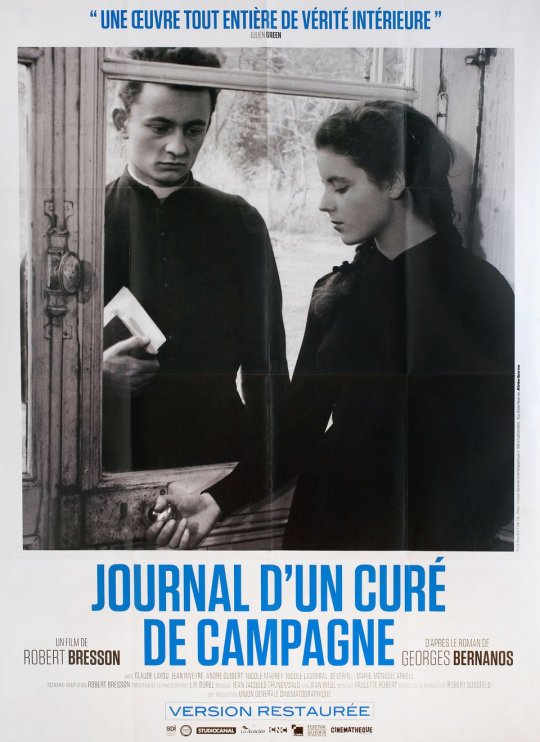
#Diary of a Country Priest#Claude Laydu#André Guibert#Jean Riveyre#Marie-Monique Arkell#Robert Bresson#1951
8 notes
·
View notes
Text
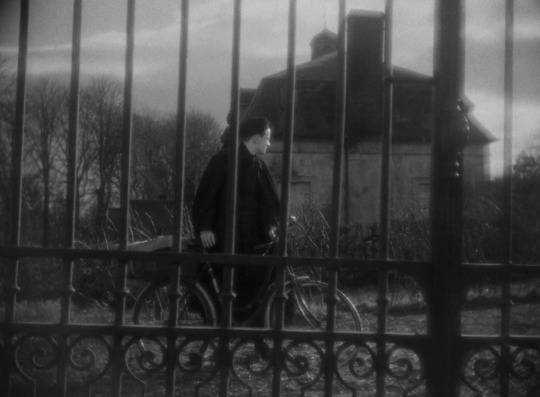

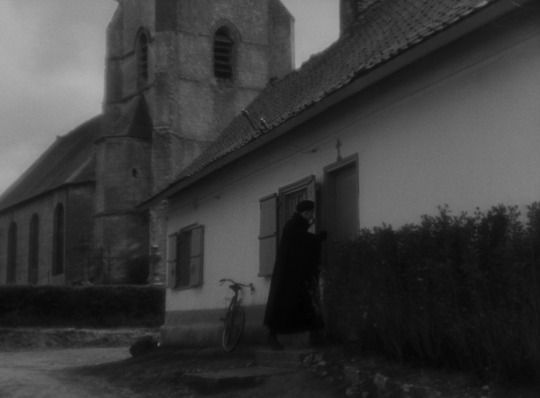
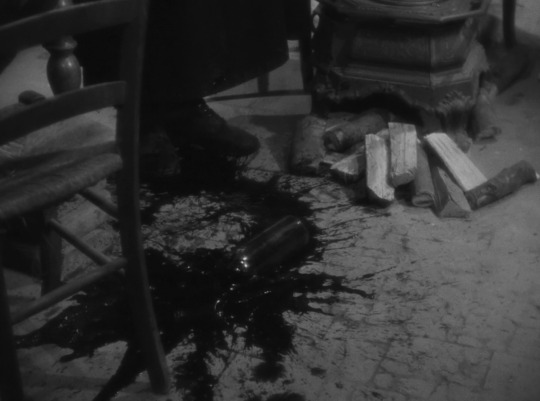
Diary of a Country Priest (1951), directed by Robert Bresson
Cinematographer: Léonce-Henri Burel
#Diary of a Country Priest#1951#film#film screenshots#french cinema#Claude Laydu#robert bresson#Léonce-Henri Burel
7 notes
·
View notes
Photo
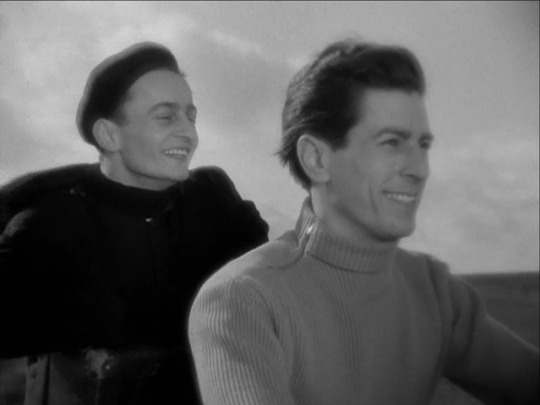
Claude Laydu and Jean Danet in Diary of a Country Priest (Robert Bresson, 1951)
Cast: Claude Laydu, Jean Riveyre, Adrien Borel, Rachel Bérandt, Nicole Maurey, Nicole Ladmiral, Martine Lemaire, Antoine Balpêtré, Jean Danet, Léon Arvel. Screenplay: Robert Bresson, based on a novel by Georges Bernanos. Cinematography: Léonce-Henri Burel. Art direction: Pierre Charbonnier. Film editing: Paulette Robert. Music: Jean-Jacques Grünenwald.
The still above, of the young priest (Claude Laydu) happily accepting a ride on the back of a motorcycle from Olivier (Jean Danet) is not meant to be representative of the film as a whole. Quite the contrary, Olivier is a cousin of Chantal (Nicole Ladmiral), who, along with the rest of her family, has caused the priest much pain. Olivier is a soldier in the Foreign Legion, a character whose life is about as far from the priest's tormented spirituality as possible. The scene is a brief, liberated one, suggesting a world of potential other than that of the spiritual and physical suffering the priest has known in his assignment to the bleak and hostile parish of Ambricourt. The priest returns to his suffering after his motorcycle ride: He learns that he has terminal stomach cancer and dies in a slovenly apartment watched over by a former fellow seminarian, Fabregars (Léon Arvel), who is living with his mistress. As ascetic as the young priest has striven to be, he has to come to terms with a world that seems irrevocably fallen, even to the point of taking the last, absolving blessing from the lapsed Fabregars. Of all the celebrated masterworks of film, Bresson's Diary of a Country Priest may be the most uncompromising in making the case for cinema as an artistic medium on the same level as literature and music. In comparison, what is Citizen Kane (Orson Welles, 1941) but a rather blobby melodrama about the rise and fall of a newspaper tycoon? Even the best of Alfred Hitchcock's oeuvre is little more than crafty embroidery on the thriller genre. The highest-praised directors, from Ford, Hawks, and Kurosawa to Godard, Kubrick, and Scorsese, never seem to stray far from the themes and tropes of popular culture. Even a film like Ozu's Tokyo Story (1953) falls back on sentiment as a way of engaging its audience. But Bresson strives for such a purity of character and narrative, down to the refusal to use well-known professional actors, and such a relentless intellectualizing, that you can't help comparing his film favorably to the great works of Flaubert or Dostoevsky. Having said that, I must admit that it's a work much easier to admire than to love, especially if, like me, you have no deep emotional or intellectual connection to religion -- or even an outright hostility to it. Does the suffering of the sickly young priest really result in the kind of transcendence the film posits? Are the questions of grace and redemption real, or merely the product of an ideology out of sync with actual human experience? What explains the hostility he encounters in the village he tries to serve: the work of the devil or just the bleakness of provincial existence? On the other hand, just asking those questions serves to point out how richly condensed is Bresson's drama of ideas. I love the movies I've alluded to above as somehow lacking in the intellectual seriousness of Bresson's film, but there's room in the pantheon for both kinds of film. Diary of a Country Priest remains for me one of film's great puzzles: What are we to make of the young priest's intellectualized faith? Is it a film for believers or for agnostics? In the end, these enigmas and ambiguities are integral to its greatness.
3 notes
·
View notes
Text
DIARY OF A COUNTRY PRIEST:
New priest of village
Finds suspicion from locals
A crisis of faith
youtube
#diary of a country priest#random richards#poem#haiku#poetry#haiku poem#poets on tumblr#haiku poetry#haiku form#poetic#1001 movies you must see before you die#1001 movies#criterion collection#criterion channel#Claude laydu#Nicole Ladmiral#robert bresson#georges bernanos#Youtube
1 note
·
View note
Text
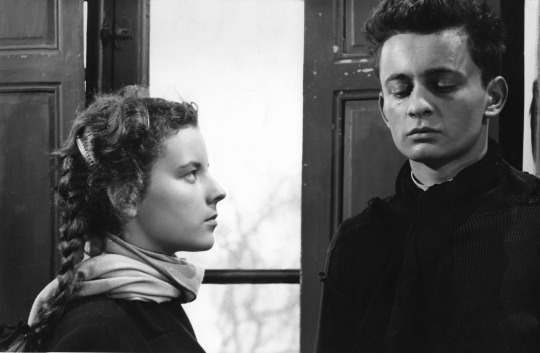
Nicole Ladmiral et Claude Laydu. "Journal d'un curé de campagne" par Robert Bresson.
1 note
·
View note
Text
MOVIE QUOTE OF THE DAY:
“What wouldn’t I have given this morning for a word of compassion or kindness.”
Claude Laydu in Diary of a Country Priest
#DiaryOfACountryPriest #Bresson #RobertBresson #ClaudeLaydu
#Moviequotes #MovieQuoteOfTheDay

0 notes
Video
youtube
Nous sommes tous des assassins (1952) Bande Annonce VF [HD]
Un soldato, ottuso e ignorante, sopravvissuto alla seconda guerra mondiale, continua a uccidere una volta finita la guerra. Quando provoca la morte di una guardia, viene condannato alla ghigliottina. Il suo difensore farà emergere durante il processo le responsabilità sociali dei suoi comportamenti devianti.
Note
Cayatte, giornalista e avvocato, al 13° film affronta il suo tema prediletto: il film è un appassionata requisitoria contro la pena di morte. Alle volte un po' didascalico, ma nel complesso un'opera avvincente. Scritto dal regista con Charles Spaak. Premio speciale della giuria a Cannes.
Siamo tutti assassini (Nous sommes tous des assassins) è un film del 1952 diretto da André Cayatte, vincitore del Premio Speciale della Giuria al 5º Festival di Cannes.[1
Titolo originale Nous sommes tous des assassins
Paese di produzione Francia, Italia
Anno 1952
Durata 115 min
Dati tecnici B/N
Genere drammatico
Regia André Cayatte
Soggetto André Cayatte, Charles Spaak
Sceneggiatura André Cayatte, Charles Spaak
Fotografia Jean Bourgoin
Montaggio Paul Cayatte
Musiche Raymond Legrand
Scenografia Jacques Colombier
Interpreti e personaggi
Marcel Mouloudji: René Le Guen
Raymond Pellegrin: Gino Bollini
Claude Laydu: Philippe Arnaud
Louis Seigner: abate Roussard
Georges Poujouly: Michel Le Guen
Louis Arbessier: avvocato del tribunale dei minori
René Blancard: Albert Pichon
Amedeo Nazzari: dottor Detouche (versione italiana)
Jean-Pierre Grenier: dottor Detouche (versione francese)
Yvonne Sanson: Yvonne Le Guen (versione italiana)
Jacqueline Pierreux: Yvonne Le Guen (versione francese)
Antoine Balpêtré: dottor Albert Dutoit
Léonce Corne: capitano Girard
Henri Crémieux: avvocato di Bauchet
Jean Daurand: Girard, l'uomo della cabina telefonica
Yvonne de Bray: prima cenciaiola
Lise Berthier: seconda cenciaiola
Guy Decomble: un ispettore
Monette Dinay: la ragazza di Charles
Julien Verdier: Bauchet
Yvette Etiévant: moglie di Bauchet
Juliette Faber: Francine Saulnier
Paul Faivre: Biribi
Anouk Ferjac: Agnès
Paul Frankeur: Léon, capo delle guardie
Renée Gardès: madre di Le Guen
Jérôme Goulven: Noblet
Elisabeth Hardy: madre della bambina
François Joux: Saulnier
Alinda Kristensen: donna svedese
Charles Lemontier: procuratore
Roland Lesaffre: detenuto barbiere
Liliane Maigné: Rachele
Daniel Mendaille: carceriere capo
Eliane Monceau: amica di Dutoit
Jacques Morel: Charles
Jean-Paul Moulinot: direttore della Santé
Lucien Nat: avvocato dell'accusa
Line Noro: Louise Arnaud, madre di Philippe
Marcel Pérès: Malingré
André Reybaz: padre Simon
Alexandre Rignault: gendarme
Solange Sicard: madre di Agnès
Sylvie: Laetitia Bollini, madre di Gino
Georges Tabet: la pianista
Jean-Marc Tennberg: Fredo
André Valmy: il piccolo Louis
François Vibert: madre di Mousset
Henri Vilbert: signor Arnaud
0 notes
Text
Les belles expressions de la langue française : " le marchand de sable est passé "
Le 10 décembre 1962, Claude et Christine Laydu, diffusent pour la première fois « Bonne nuit les petits » sur la première chaîne de l’ORTF. C’est ainsi que tout au long de mon enfance, le Marchand de Sable et Nounours, perchés sur un nuage, viendront, chaque soir, conter de jolies histoires à Nicolas et Primprenelle pour les aider à s’endormir…” Bonne nuit, les petits ” nous disaient le…

View On WordPress
0 notes
Photo
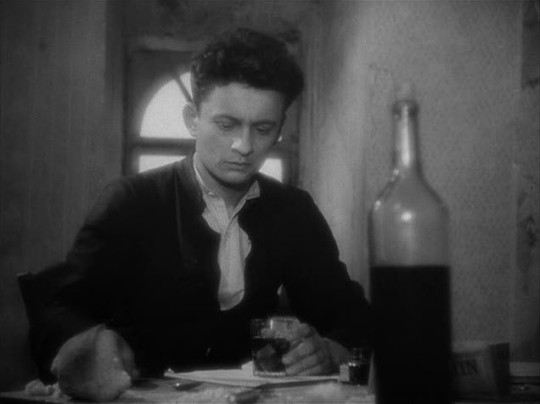
Claude Laydu in
“Le Journal d’un curé de campagne” (Robert Bresson, 1951).
1 note
·
View note
Photo

Journal d'un curé de campagne | Diary of a Country Priest
Poster design for Robert Bresson’s 1951 film
#poster#film poster#design#illustration#vector art#adobe illustrator#robert bresson#claude laydu#artists on tumblr
79 notes
·
View notes
Photo


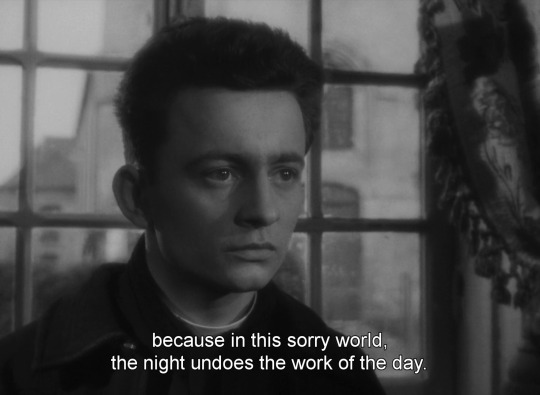
Diary of a Country Priest (1951)
#diary of a country priest#journal d'un curé de campagne#robert bresson#claude laydu#movies#film#quotes#1951
310 notes
·
View notes
Text
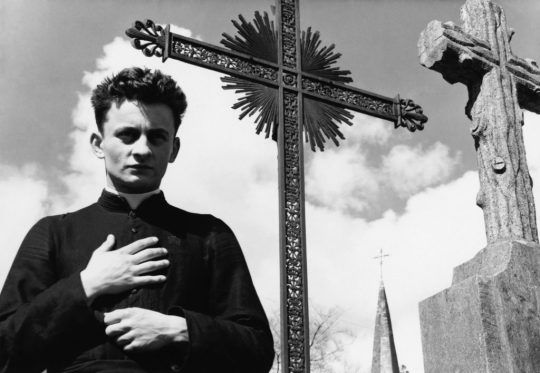
Claude Laydu, March 10, 1927 – July 29, 2011.
Robert Bresson’s Diary of a Country Priest (1951).
16 notes
·
View notes
Photo


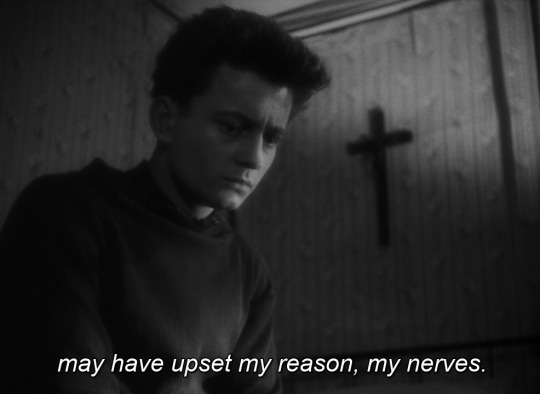
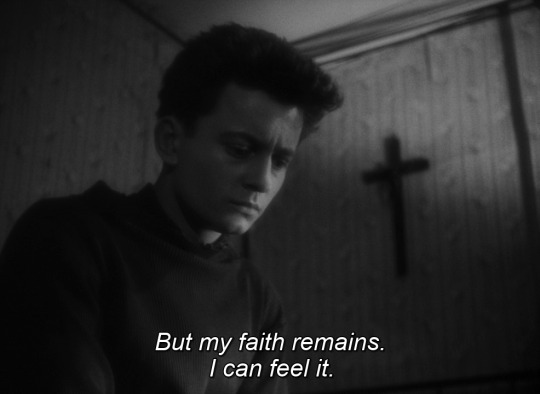


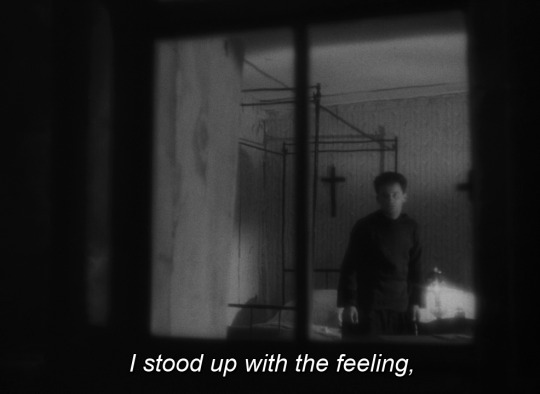
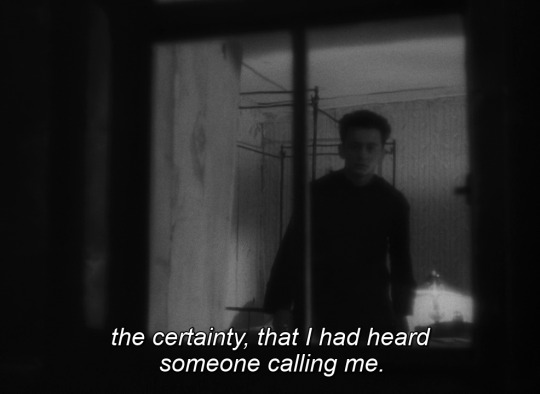


Journal d'un curé de campagne (Robert Bresson, 1951).
#Journal d'un curé de campagne (1951)#robert bresson#claude laydu#léonce-henri burel#paulette robert#pierre charbonnier#robert turlure#paul colin#diary of a country priest (1951)#diary of a country priest#journal d'un curé de campagne
161 notes
·
View notes
Photo

Diary of a Country Priest (1951)
162 notes
·
View notes
